“The Legend of the Condor Heroes” Novels Get English Translation
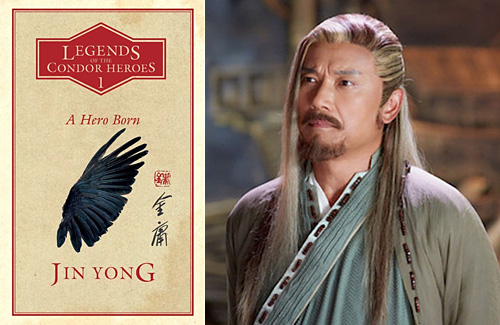
Published in 1957, Jin Yong’s (金庸) The Legend of the Condor Heroes <射鵰英雄傳> trilogy are classic martial arts novels which have been adapted into countless television dramas. Hoping to expand the popularity of the novels outside of the Chinese culture, an English adaptation was released this year but was met with little praise.
Anna Holmwood, a Master’s student at The University of Oxford, took on this initiative. Unfortunately, her translations rendered some of Jin Yong’s character names laughable. For example, lead female Huang Rong, was translated to Lotus Huang. Other odd translations included Skyfury Guo and Lily Li, which were Guo Xiaotian and Li Ping. Yang Tiexin and Bao Xiruo turned into Ironheart Yang and Charity Bao.
Some wondered why Huang Rong was given an English name when the two males, Guo Jing and Yang Kang kept their original Chinese names. When asked, Holmwood explained that not many western readers know how to pronounce ‘Rong’. She also added that readers can clearly distinguish that Huang Rong is indeed a female and avoid confusion because Guo Jing initially thought Huang Rong was a boy when they first met.
Character names aside, Holmwood had trouble finding the appropriate names for all the martial arts moves described in the novels. The two most famous ones, Jiuyin Zhengjing (九陰真經) and Jiuyin Baigu Zhao (九陰白骨爪) turned into Nine Yin Manual and Nine Yin Skeleton Claw. While Xiang Long Shi Ba Zhang (降龍十八掌) became 18 Palm Attacks to Defeat Dragons.
However, it should be understandable that Jin Yong’s novels are difficult to translate as they incorporate many traditional wuxia terms and names. It appears that some aspects of the martial arts culture, which was a key success to the the novels, were lost in translation despite Holmwood’s efforts.
Source: HK01
This article is written by Su for JayneStars.com.

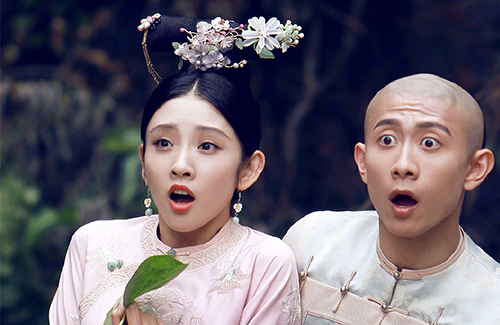
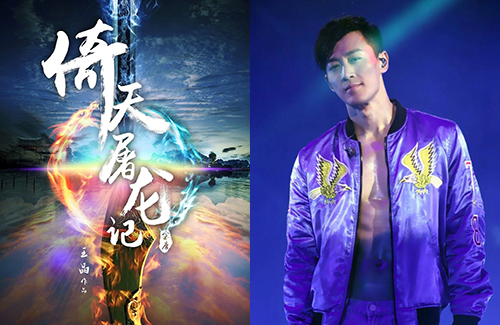
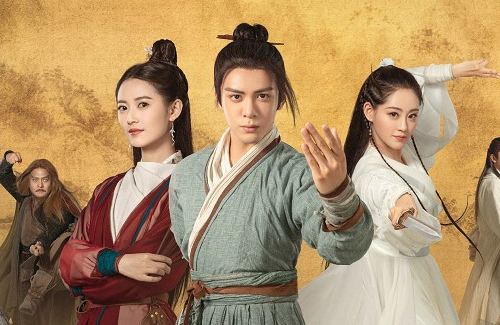
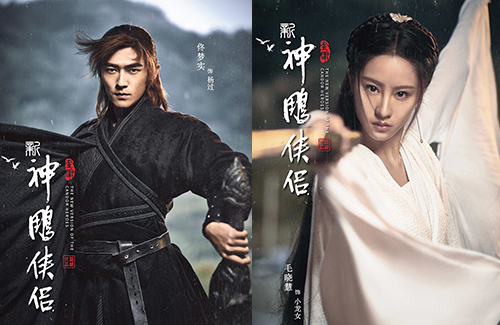
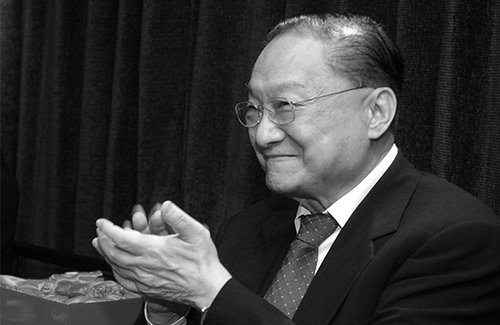
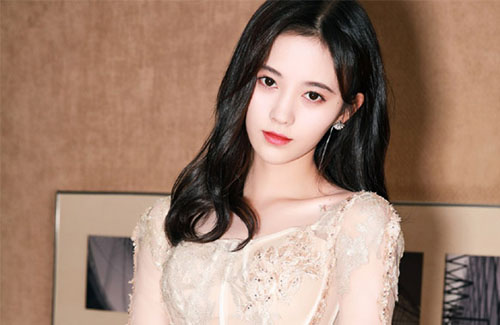
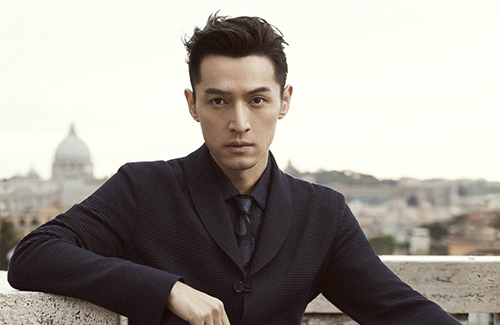
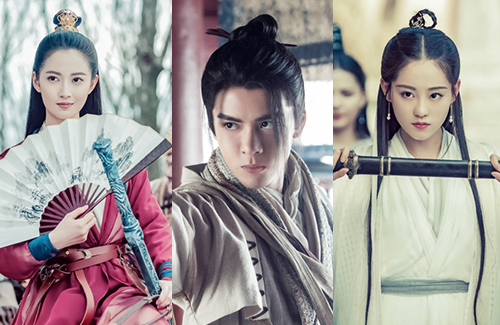
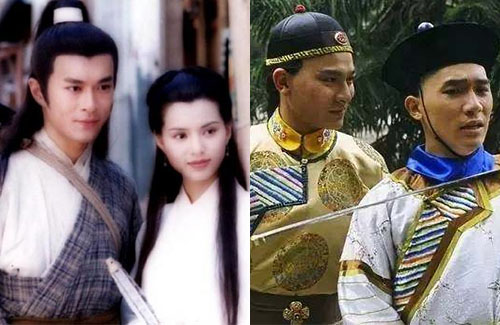
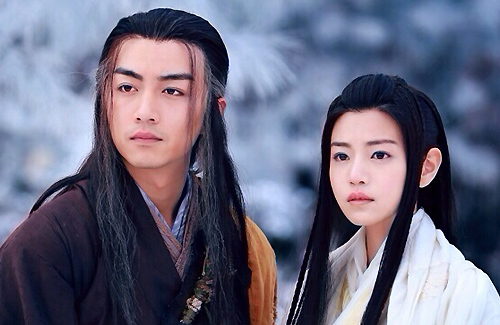
I remember trying to read English adaptations of Three Kingdoms and the amount of Ping Yin names got me downright confused by the 3rd chapter and I didnt bother continuing.
Its enormously confusing to English readers to remember these foreign names as they can appear and sound quite familiar.
Using actual English names helps to identify what people, places and moves much more easily. Even though they sound a bit weird, at least readers can understand the story!
Got the book haven’t read. Would have preferred pinyin names. Ridiculous to say names are confusing. Its a name. If you have an Asian friend named Shan shui you don’t call him mountain water. You make the effort to know him as Shan shui.
Another one coming soon, duke of mount deer 3 books. Gonna buy that.
Read an english translated gu long book which used pinyin name and beautifully translated. Can’t see why this one can’t do the same.
@funnlim I have the book too but also haven’t read it. I’ve been reading a lot of articles about the translation and it looks like the acceptance level of the novel is going to be extremely different depending on whether the person is already familiar with Jin Yong’s works or not. Having read his books in Chinese, I of course have issues with the way the names were translated – the part that irks me is the inconsistency – either use all pin yin names or use all English….here she combines both of them, sometimes in the same name, which makes the names sound super weird (I get why Holmwood did what she did with Huang Rong but instead of changing the name to Lotus, she could’ve just put a footnote explaining the significance for that particular scene). From Holmwood’s interview (the one she did in London at her book signing), it looks like she decided to prioritize Western readers who’ve never read Jin Yong before and make the book more palatable to them even if it meant sacrificing some authenticity and accuracy (of course, JY fans are going to take issue with this while Western readers are not going to know the difference).
Also, to the article’s point…it’s interesting seeing the reactions from the Chinese community versus those in the West. Practically every review I’ve read of the book so far from those in the Western world have praised Holmwood’s translation to the skies while every review from the Chinese community (those who are actually familiar with Jin Yong’s works and/or have read the originals in Chinese) has been negative (so far)….
While on the one hand, I admire Holmwood’s effort in taking on such a daunting task of translating JY’s works into English (apparently she is doing the entire LOTCH trilogy and will release one book each year), it should go without saying that authenticity is important and if she wasn’t able to achieve that (or had no intention of achieving it), she shouldn’t have even attempted the translation. I also have a problem with the fact that Holmwood only studied Chinese for 3 years and only started becoming interested in Chinese culture while in college — prior to that, she didn’t know a single word of Mandarin and knew nothing about Chinese culture, history, etc….sorry, but based on that, it’s kind of hard for me to not be skeptical about whether Holmwood is even qualified to translate such a classic piece of literature, especially one that is written in ancient Chinese (and no, just because she has a degree in Chinese studies doesn’t mean she is qualified – hey, I have a degree in Chinese studies too AND grew up immersed in the Chinese culture, PLUS I’m fluent in both Chinese and English, yet I wouldn’t dare consider translating Jin Yong’s works because I feel I’m nowhere near qualified).
By the way, the publisher is marketing this book as a Chinese version of “Game of Thrones” while Western media is comparing it to “Lord of the Rings”. I haven’t read either book but know enough about both stories to say that, um, sorry but the Western press has it wrong (anyone who has actually read GOT and LOTR feel free to weigh in though…).
@llwy12 maybe they mean in term of significance of the books to the readers? As all fantasy book fans know everything started off with TLOR, everything we know to do about fantasy stem from tokken’s work, all concepts and character and lores, think world of Warcraft, etc. But TLOR isn’t heavy on faction fightings, personal conflict, relationship entanglement, so that’s why they use GOT.
@littlefish Could be….though yours is the best explanation I’ve heard so far, to be honest. Maybe this is the same reason why some Western media have been comparing LOTCH trilogy to Harry Potter series too (when I first heard this, I was like, um, are you guys for real? Comparing Condor Heroes to a kid’s book? Seriously?) I honestly wish those writing the articles on the Western side of the world would be more clear so as not to mislead potential readers….
@llwy12 yea, they totally should be more clear in why they use TLOR or GOT to compare with his work.
I don’t think it’s great to compare it to Harry Potter, I can see why, it’s PG, reach a wide range of audience, popular to the point everyone knows it, teaching positive values, etc. however, Jin Yong’s books are far more complex, and as much as children can read them, it has adult context. And again, missing the important fact that like Tokken, Jin Yong creates this wuxia universe foundation that is used by many still later on
@llwy12 It’s a facade to market YJ books. GoT and LotR are popular worldwide. Lots of people know. So to sell YJ books as similar to those, then people get curious or interested.
Not gonna take additional guess to LotR comparison bc I agreed with the posted explaination. As to GoT, there are some (farfetched) similarity. One, they both jave war as backdrop. Two, some similar traits/aura on some characters. Snow/Kui Fong (in “dragon’s 8 steps to heaven”) are raised on the wrong side, fought/lived by “enemy” code, but in the end, they chose their adopted live over blood. Danny/the monk (same series) whom were quickly lookover at first but later became fierce and top talk. Imp/Benny Chan character where they’re womenizser. Haha, I digressed.
I still think they just eant to create buzz. Also GoT and LotR have large fan base to entice them to read YJ novels.
@funnlim There is an English version of Duke of Mount Deer (but is published under the Deer and the Cauldron) by John Minford. I tried reading it in English and couldn’t get past the first chapter. Certain words were literal translations but did not make sense at all.
@mosailan
you mean Wei Xiao Bao becoming “Trinket”?
@smurf Trinket? Seriously? That’s worse than calling Huang Rong “Lotus”…
@smurf Yep. If i remember correctly, there was ‘running dog’ (走狗), ‘Silly Egg’ (傻蛋) and turtle bastard (烏龜王八蛋) as well as many others.
@mosailan
It all struck me as very British. So being American, I was like hmmm. So had to go through layer of Chinese then British colloquialism to read it through.
Bright spot was that Minford went thru painstaking detail to translate and annotate Russian arc which most adaptations gloss over, if you are interested in that.
@mosailan oh dear.. That’s the one. Sigh. The one I read 11th son was very well translated for me. The way it was translated for me evoked the Chinese prose. Noticed a Chinese translator did it. A name is a name. Wei xiaobao is wei xiaobao. Can have appendix explaining the name but no need to go trinket. Is it even trinket or little treasure or whatever?
@funnlim
I saw this on Amazon the other day but am hesitating on getting it as the names may get confusing. Plus, I am a very lazy reader and have only read parts of his novels since they are too long. I usually just watch the Tv adaptions. I only read Fox Volant since I had to for a class. I need to get off my lazy butt.
@hetieshou I borrowed the Deer and the Cauldron at my local library. Perhaps you may want to try it? If you don’t like it, you can always return it.
@mosailan
I do not know if my local library has it or not. It is very expensive to buy too.
Did you like the translation?
@hetieshou you can give it a try. I was surprised my local library had it. I live in Canada and the city where I am from, we have a small Chinese population compared to Vancouver or Toronto (but large enough to have a Chinatown). I couldn’t get past the first chapter as I found some of the translation ridiculous. Maybe in the future I’d give it another try.
@mosailan
Ok,thanks so much! Let me see if I can find it first. I can read Chinese and all but get lazy to read.
@funnlim Pin Yin names can be very confusing. You need to put yourself in the shoes of a westerner who doesnt have any chinese basis.
Chinese names use a lot of the same surname. In 3 kingdoms I couldnt count the amount of people with surname Li or zhang I confused with each other.
At the end of the day, a non English mainstream reader will look at pin ying and be intimated because it is not what they are used to looking at and pronouncing. I can see why they took this move, even if I agree that sometimes names really should be less silly.
@megamiaow I agree pin yin is daunting to Westerners. But I still think the characters lost a part of them by changing their names. To help Western readers, put a page of all the names in pin yin and their relationship in the back as reference. GoT has that since there are gazillion of characters and weird names too. It sucked that Asian culture lose part of the identities just to accommodate Western World. We should make them learn about it as is. My 2 cents.
Isn’t English stories translatiom to Chinese keep the English names pretty closely translated? Like using characters that are similar sounding to the English name but ended up with 2-3 weird Chinese characters ?
@jjwong
Good suggestions! However, if they want to keep the English translations close to the Chinese then I wonder how they got Trinket Wei from Wei Xiao Bao?
@jjwong I agree with you. The reason it bothers me so much is because I see it as a matter of respect for the culture. Sure, pin yin is daunting for Westerners but that doesn’t mean we should just change it to make it easier on others.
Yes, English names are translated based on the way they sound, not based on meaning. So the name Jennifer would be 珍尼弗 (zhen ni fu) because those characters sound closest based on pronunciation. If you were to take those Chinese characters separately and translate them, 珍 means “treasure” or “precious”, 尼 means “Buddhist nun”, and 弗 is a formal way for saying “no” or “not”. So based on the Western translators’ logic, if I’m trying to translate an English work into Chinese for non-English speaking audience and I see the name 珍尼弗, is it ok for me to just translate her name as “Treasure” because it’s easier than having to use 3 characters and also less confusing? Or would “Jennifer” like to be called “Buddhist nun” or “Not” instead???
@llwy12 Exactly! It irks me to no end when China alters what make us, us. Look how they eff up “Money King” in that movie with Jet Li and Jackie Chan. Or even in the Terra Cotta warriors in thevMummy. None of that remotely close to their original creativity. Yet they mixed it all up, pick and chose things that westerners slightly know and piece them all together INSTEAD of telling the story correctly, expand their knowledge in the original stories, and make them learn properly. Sad.
On a somewhat related note, I like how Korean mandated their celebs from using or having English name / stage name.
@hetieshou Isn’t Xiao Bao means Little Treasure? So many that’s why they chose Trinket??? I mean they can simply do Why Sew-Bow and use Sew-Bow throughout the novel. Or again, keep the pin yin. I mean how many had to do second or third look at Hermione, Daenerys, Arwen?
By the way, how is HK or China treat copyright of YJ works?
@jjwong
I don’t agree with the similar name argument. In Song of Fire and Ice series (Game of Thrones) there are no less than 15 different Bran/Brandons, Roberts, etc.
People take time to learn them.
@smurf Exactly. The point is there’ll be a struggle and discomfort for 99% people who just start reading. Things will click. For Westerners, it’ll take a longer time to learn the pin yin yes; but if you’re really invest and like the book, you’ll learn. So these translated names to English is ridiculous; unless it’s common sense / straight translation like Jade Emperor instead of Yuc Wong Dai Day.
Thanks for the links, mate.
I spent a year hunting down all the copies of the John Minford’s Deer and the Cauldron – Book 2 and 3 are so abridged I don’t think they are worth reading (spent over $100) about 8 years ago.
I think the fan translations on http://wuxiasociety.com/translations/ are vastly superior to the Oxford “professional” translations especially if you would like pinyin or have some familiarity with the original stories. Check it out.
I would never have known the pleasure of reading Gu Long and Huang Yi if not for these translations.
@smurf thanks for the link!! So many translated. How can anyone do abridge version? I wished they did with lotr!
@smurf OMG. Thanks for sharing!!! I took a quick read on Demi-Gods and Semi-Devils. It’s great!!! Only sad thing is it’s only 1 chapter thus far.
So many option now, IDK which one to read next lol.
@jjwong
http://www.spcnet.tv/forums/showthread.php/21972-A-step-into-the-past-%E5%AF%BB%E7%A7%A6%E8%AE%B0-by-Huang-Yi
@jjwong
This is most comprehensive site for wuxia discussions and translations. You will have to use search function to find all the translations.
http://www.spcnet.tv/forums/forumdisplay.php/29-Wuxia-Translations
Here’s a link to an article in the New Yorker about the release of the English version. Weeding through all the “praise” for Holmwood and her translation, the part that most interested me was the update on Jin Yong’s current condition…I must admit I was a bit saddened to learn that Jin Yong can no longer walk, write or even talk much for that matter…I know he’s 94 years old already and perhaps that is to be expected with old age, but still…. (and this was 4 years ago…imagine how things must be now…).
Excerpt from article: “Four years ago, I met Cha at the Shangri-La Hotel, which sits at the foot of the rain-forested mountain that dominates Hong Kong Island, for an interview about his literary legacy. Cha has been frail since suffering a stroke, in 1997; he is unable to walk or write, and speaks with difficulty, relying on a retinue: his third wife, his secretary, his publisher, a nurse, a personal assistant, and a rotating cast of protégés. The meeting, one aide told me, would likely be the last interview of Cha’s life. We had lunch in a private dining room, and he sat facing the door, the feng shui seat of honor. His voice, thick with home-town dialect, was weak and hoary, but he managed a few answers in a mix of Mandarin, Shanghainese, and Cantonese. (His English and French have left him.)”
Link: https://www.newyorker.com/books/page-turner/the-gripping-stories-and-political-allegories-of-chinas-best-selling-author?mbid=social_twitter
@llwy12
Thanks for the update on JY. I feel sad to hear of his condition but due to his old age, this is expected as he is in his 90s. There are some amazing people like my late maternal grandmother who lived until 100 and was still able to walk and was able to talk very normally until her last day. She had no memory loss too. Of course people like my grandma are rare.
Ugh… I hate when meanings get lost in the translations. I found this website with fan translations of Jin Yong novels. They stuck with the pinyin names. I read the first few chapters and it looks really good.
http://wuxiasociety.com/the-legend-of-the-condor-heroes/
@heather Now THIS is what I call good translation!! What does it say about those so-called “professional” translators when the “fans” are able to render translations that are way more accurate and better written to boot? And yet those same “professionals” write-off the fans as “not going through the right channels” and “not being professional enough”…such a load of crap! Kudos to fan translations!
@llwy12
I agree and I have seen fan translations to be way better than these soul called professional translations. The professional translations confuse me even more. For example, when they say “white camel mountain “, I did not know what they were referring to until I saw the Chinese characters.
@llwy12 I think the fans read the book and know what it should be like and translate to the right context. A professional doesn’t get that context and therefore the meaning is lost in translation
@littlefish
That can be a possibility but then again we are not sure.
@littlefish Yea and I think fans’ love for the works play a huge role as well, as they would be motivated in making sure the proper respect is there in terms of the translation. I know that’s the way I am with stuff I’m passionate about — I would go to painstaking lengths to ensure it’s done correctly and if I know I can’t do it, I wouldn’t even try.
@heather
I love promoting the fan translation because they are culmination of years of hard work often by multiple translators with fan corrections on the subthreads on spcnet.
For example A Step Into the Past took over 8 years with 10+ translators on the project -all on their own time. I consider it a treasure.
Please read Foxes (Franz) translation of the Condor series. That one is the best in my opinion.
@smurf please post step into the past link. Please!!
@funnlim
This is most comprehensive site for wuxia discussions and translations. You will have to use search function to find all the translations.
http://www.spcnet.tv/forums/forumdisplay.php/29-Wuxia-Translations
@funnlim
Just found the original thread. I followed this one for almost 8 years…
http://www.spcnet.tv/forums/showthread.php/21972-A-step-into-the-past-%E5%AF%BB%E7%A7%A6%E8%AE%B0-by-Huang-Yi
Side note: anyone knows of there’s audio-books to these novels? Canto-version? Or maybe there’s fan site that have done it. I honestly would support kickstarter or something sinilar to get a good audio-books or English translated transcript to all these xD It seems like that Wuxia Society fan page has been stagnant
Is that Michael Miu in the photo? Which show is it in the photo?
@kk12345
Yes that is Micheal Miu as Huang Yao Shi in the newest remake of the Legend of the Condor Heroes from Mainland China.
@hetieshou Thanks for information.
@kk12345
You are welcome and do you plan on watching it? I saw some of it and it is not too bad but I am sooooo tired of remakes so not sure if I want to see it all.
@hetieshou I am not sure where I can watch the condor heroes online. But I will probably not be watching it as I am also tired of remakes. But I will watch Heaven Sword and Dragon Sabre if it comes out, as it is my favorite wuxia book. Just finished watching 3 of Yoo Seung-Ho’s shows. I’m not a robot, remember and ruler:master of the mask. Oh, is your mum still watching series with you? Ruler:master of the mask seems quite an ok ancient series, not fantastic though.
@kk12345
You can watch any new series online either on Viki or YouTube. That is where I watch most of my series. I am sick of remakes too but like you, I love the New Heaven Sword and Dragon Sabre. I know the actor that plays Zhang Wu Ji since I have seen him in a few series already. His acting is not too bad and I think he will fit the character of Zhang Wu Ji just fine.
Are those Korean series? I stopped watching Korean series since they were not so good. Some were ok but most of them got boring to me.
Sadly my late mom passed away in Dec 2016. I miss her so much and will always remember all of the memories that I had watching and discussing series and novels with her. She got sick of remakes too and loved reading the novels more. She was a fan of the Chinese classics as well as Wu Xia.
@hetieshou Sorry for your loss. My condolences to your family. I believe that we will be able to see our loved ones someday in heaven and they are probably preparing a special room for us so that we can stay with them in future forever.
I refer to https://mydramalist.com to see the grading on the Korean series by viewers. Majority of the series aren’t nice, so I refer to the website often.
Sometimes I wonder what is the point of life. If I were to have a choice between watching television dramas or being with my loved ones in heaven, I will definitely choose to be with my loved ones in heaven. I am just rambling on again, maybe god will hear me rambling on and on again. haha.